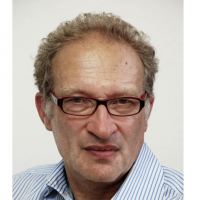Professor David Lehmann has a multiple academic identity: as a Latin Americanist he has done research in Chile, Ecuador, Mexico and Brazil, and although Brazil has been the most prominent, his attachment to and inspiration from Spanish America is extremely important. He has also undertaken research in Israel.
The themes of his work are also multiple: originally devoted to Development Studies, he began working on religion in the 1980s, first in Brazil, then in Israel and now on a multinational level. But in the first decade of the 2000s David branched out in a new direction with a big project on the spread of multiculturalism and affirmative action in Latin America.
His academic career began in Oxford, but it really only came to life in 1968 when he went to Chile to do research on land reform. The next five years were, to say the least, a turbulent period, which together with the catastrophic repression which followed the 1973 military coup influenced a whole generation.
David's first job was at the Institute of Development Studies at Sussex University, after which he worked briefly at the University of Kent, and then from 1973 in Cambridge. He has taught on Development, Latin America and Religion, and was Director of the Centre of Latin American Studies for 10 years during the 1990s. He has been a Visiting Professor in Brazil, Chile, Spain and France.

